

Campus Labs: The Heart of Hands-On Learning

Learning through hands-on experience allows students to put their knowledge to the test, engage with their studies and practice skills that are directly transferable to their roles after graduation.
Thanks to a wide array of on-campus labs, students at Embry-Riddle Aeronautical University are guaranteed opportunities to pursue research, experimentation or advanced studies in their chosen field. These labs play a vital role in student success and help develop future professionals.
Students often develop a passion for research, choosing to pursue graduate studies and earn funding to study their interests, while others use lab participation to gain the knowledge and experience they need to launch and advance their careers.
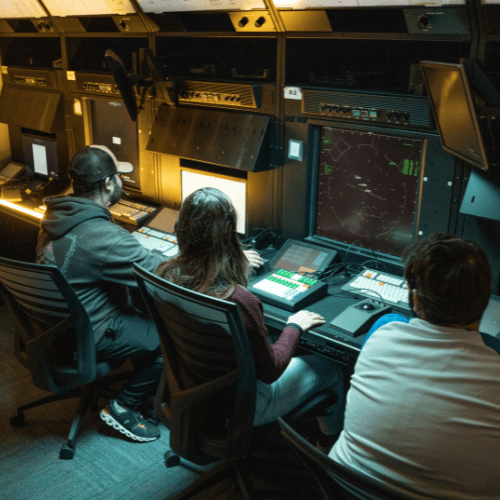
AIR TRAFFIC CONTROL LABORATORIES
Located on the Prescott, Arizona, and Daytona Beach, Florida, campuses, Embry-Riddle's air traffic control (ATC) laboratories feature advanced simulation software capable of recreating real-life flight situations. In these labs, students gain experience using exact replicas of the software and technology used in facilities around the country.
The labs feature equipment such as custom mechanical keyboards, trackballs and headset adapters. Students enrolled in air traffic control programs complete their capstone project in this lab — a culmination of their skills and knowledge in ATC environments.
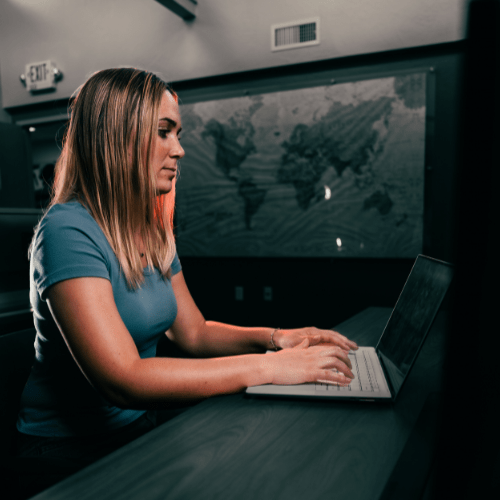
CYBER LABORATORY
Often dubbed by students as the “Hacker Lab,” the Cyber Lab offers 24 workstations where students learn about how information and systems can be compromised, practice cyber defense techniques against real-world cyberattacks, and hack to perform penetrative tests on computer operating systems and applications.
Students in the Cyber Lab develop skills in identifying, assessing and mitigating real-world vulnerabilities. Students reverse engineer malware to understand how to defend against computer viruses and worms, perform forensic examinations of computer systems and identify hidden files to capture digital evidence.
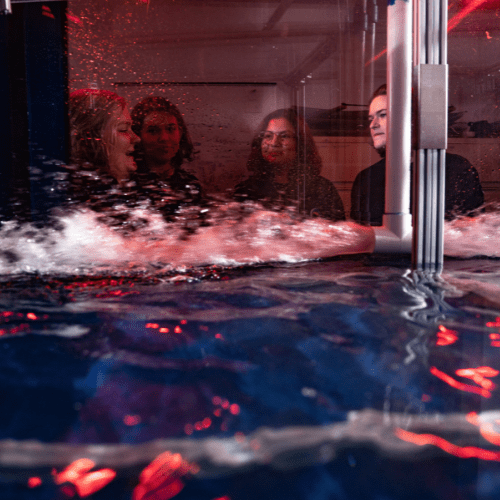
NONLINEAR WAVES LABORATORY
Housed in the College of Arts & Sciences on the Daytona Beach Campus, the Nonlinear Waves Lab contains an impressive 4,000-gallon water tank, where research is conducted on fluid dynamics using computer-controlled wave makers and advanced data acquisition systems.
Students and faculty in this lab research a wide range of topics, including physical oceanography, nonlinear waves, tsunamis, waterspouts, rip currents, Arctic interactions and the transport of algae and sediment.
Whether it's predicting the next rogue wave or understanding the forces that drive tsunamis, the Nonlinear Waves Lab has it covered.
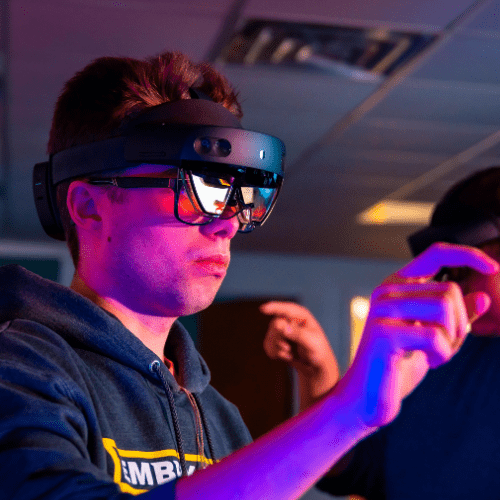
SIMULATION SCIENCE, GAMES AND ANIMATION LABORATORY
The Simulation Sciences. Games and Animation Lab offers students a dynamic space to bring their visions to life, providing access to the latest technology in simulation science, games and animation. Whether working on projects or homework, students can explore and create virtual worlds – the only limit is their imagination.
This lab supports research in user experience design, team-based game development and spatial computing practices. It also gives students the opportunity to work with industry-standard equipment and advanced simulations, preparing them for careers in these rapidly evolving fields.
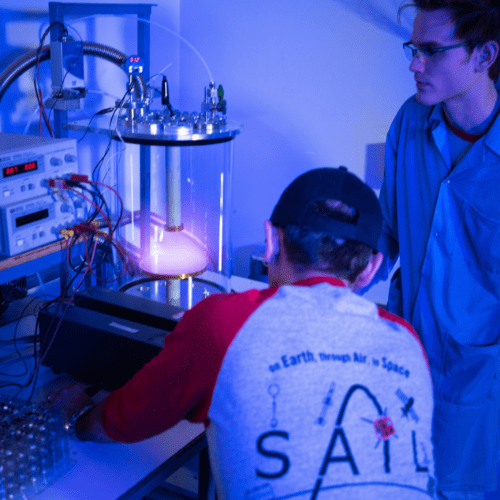
SPACE AND ATMOSPHERIC INSTRUMENTATION LABORATORY
The Space and Atmospheric Instrumentation Laboratory (SAIL), located in the College of Arts and Sciences of the Daytona Beach Campus, houses three plasma chambers, multiple stations for students pursuing experimental or plasma modeling work, equipment for hardware development for rocket and satellite missions, and state-of-the-art workstations for analysis of flight data.
Student-designed and built projects from SAIL have flown on over 100 high-altitude balloons, over a dozen sounding rockets and multiple small satellites, including instruments built for a dual satellite mission to Mars.
Hands-On Excellence
All Embry-Riddle labs are equipped with cutting-edge technology and equipment, allowing students to gain valuable experience right on campus. With knowledge built through hands-on experience, graduates are ready to hit the ground running in their careers after graduation.

